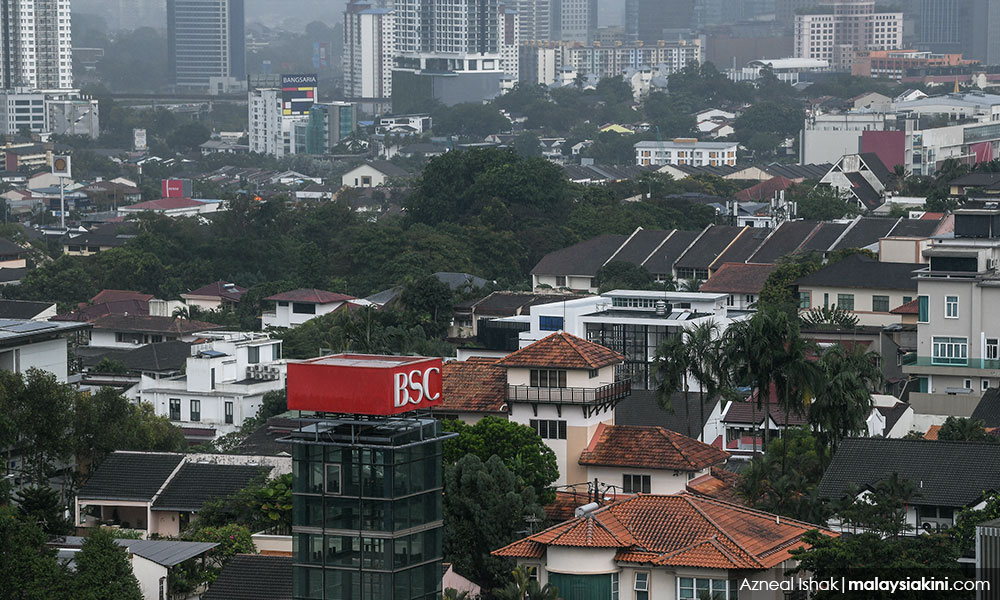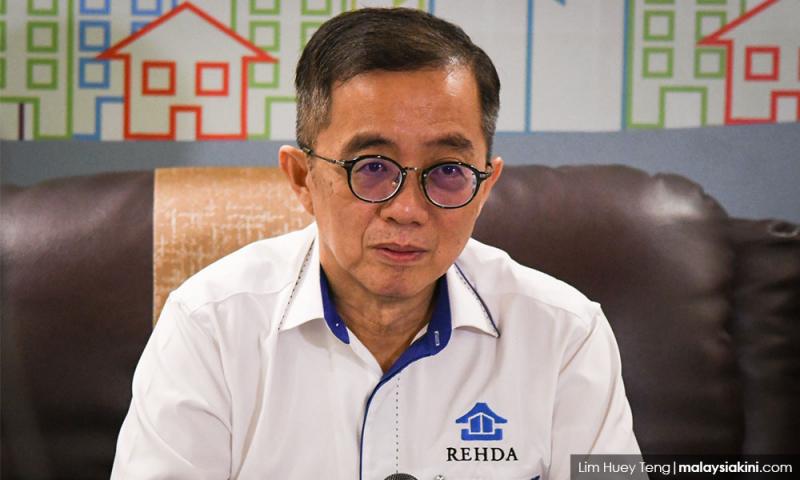Rehda urges gov't to review charges, requirements to save cost
The Real Estate & Housing Developers' Association (Rehda) hopes the government will lower or abolish unnecessary charges and requirements imposed on developers to reduce the cost of doing business.
Its president Soam Heng Choon said developers have been experiencing a significant increase in the cost of doing business, particularly in construction materials and consultancy services, which are between five to 10 per cent higher.
"By being able to reduce the cost of doing business, the savings can be passed on to housebuyers in the form of more affordable housings," Soam told Bernama when sharing Rehda’s wishlist for the forthcoming Budget 2020.
The requirements that developers have to comply include land conversion premium, capital contribution charge (for infrastructure and utility) where some plots of land need to be surrendered for plants and machinery construction and stamp duty.
Rehda, he said, felt that private utility companies such as Syarikat Bekalan Air Selangor Sdn Bhd (Syabas), Indah Water Konsortium Sdn Bhd (IWK), Tenaga Nasional Bhd (TNB) and Telekom Malaysia Bhd (TM) should not be imposing capital contribution charges as developers are already required to lay infrastructure at their development projects, on top of bringing in new customers to the utility companies.

"These utility companies should revise their own capital to be recovered via tariff based on consumption through federal funding from general taxation," said Soam.
He also said the 3.0 percent of Gross Construction Cost (GCC) deposited into the Housing Development Account (HDA) for each phase of the project developments should be reduced to 1.0 percent or allow the withdrawal based on the progress of the development, for example, 1.5 percent upon approval and the remaining upon 50 percent completion.
"The deposits have been adversely impacting the project cash flow of small, medium and bigger-sized developers alike, and the impact is felt more severely by bigger players as they undertake projects with bigger gross development value (GDV) and have many on-going projects at any particular time.
"We also urge state governments and local authorities to review some of their impositions and fees that are not adding value to development, but only creating more red tapes and additional costs," he said.
On facilitating loan applications, Soam said Rehda had proposed that innovative financing packages with flexible criteria should be made available to help first-time housebuyers.
The proposal for flexible repayment is to have longer loan repayment tenure with less payment at present and gradually increase later, when borrowers’ income increased, and make monthly repayment during the initial five years as servicing interest.

"Rehda also hopes that the Step-Up Financing scheme, previously announced in Budget 2018, to be further widened to the private sector’s affordable home offerings, as a way to bridge the affordability gap for first-time buyers, akin to what is accorded to 1Malaysia People's Housing Programme (PR1MA)," he said.
The scheme, among others, allows buyers to service the loan interest in instalments for the first five years and start paying the principal beginning the sixth year.
Soam said the government could also look into a special financing scheme, similar to MyDeposit, to assist first-time time housebuyers but only for property priced RM300,000 and below.
“To complement the MyDeposit scheme, for a certain period of time, the government can give some forms of tax deduction to developers who assist their purchasers with 10 percent deposit upfront,” he said.
Recognising that payment of the deposit is one of the barriers on buying a house, Rehda suggested the disbursement of 10 percent down payment from Employees' Provident Fund (EPF) to be channelled directly to the concerned developers, without buyers forking it out from their pockets.
"We are also proposing that the percentage of contribution credited to EPF Account II to be increased from 30 percent currently to 50 percent,” Soam said.
Meanwhile, on the bumiputera quota policy, he said Rehda is hoping for a more practical and transparent guideline to ensure consistent implementation.
It also proposes the 30 percent quota to be standardised across all states, and a discount rate at five percent be given for housing and commercial properties.
Rehda also suggested that the government forms a bumiputera trust fund to manage levy paid by developers and channel the collected money back to the people in the B40 group to help them purchase their houses.
Budget 2020 is scheduled for tabling on Oct 11, 2019.
- Bernama
RM12.50 / month
- Unlimited access to award-winning journalism
- Comment and share your opinions on all our articles
- Gift interesting stories to your friends
- Tax deductable
